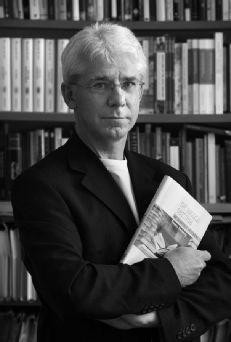You have /5 articles left.
Sign up for a free account or log in.
While American universities debate whether "civility" is an appropriate way to evaluate faculty members, a British institution has faced intense criticism for punishing a faculty member for sighing, unfriendly body language and the use of irony.
The University of Warwick has now backed down and dropped all charges against Thomas Docherty (at right), a professor of English who is known for his criticism of the the use of corporate approaches in higher education. But the case has set off a broad debate over how administrators respond to criticism, and over the vulnerability of professors who speak out. Others have said it points to the arbitrary nature of punishments in academe, given that if every professor who sighed or used irony ended up suspended, there might be a lot of empty departments in Britain and elsewhere.
 Docherty's suspension was revealed by Times Higher Education, which reported that the university said he was undermining the authority of his department head (who has since stepped down) by making "ironic" comments during job interviews, sighing and using negative body language. The suspension had Docherty banned from contact with anyone on campus, and even from writing a book preface.
Docherty's suspension was revealed by Times Higher Education, which reported that the university said he was undermining the authority of his department head (who has since stepped down) by making "ironic" comments during job interviews, sighing and using negative body language. The suspension had Docherty banned from contact with anyone on campus, and even from writing a book preface.
After the suspension was revealed, the university declined to comment except to deny that Docherty was being punished for his political views. In an email to Inside Higher Ed, a university spokesman said: “The university has received the decision of the tribunal established to consider complaints made against Professor Thomas Docherty by another senior employee. The university has accepted the Tribunal’s findings. The university has committed not to make any further public comment on the proceedings at this time so as to assist any follow-on discussions to take place. Professor Docherty welcomes and reciprocates that commitment.”
At Warwick, and more generally, Docherty has written about an eroding faculty role in university governance, and criticized inadequate public support for universities.
The case has prompted other academics to come forward and talk about how suspension is effectively immediate punishment for wrongdoing that has not been adjudicated in any way and that isolates academics who are accused, implying to colleagues that they must have done something terribly inappropriate.
Docherty confirmed last week -- on a Facebook page created by his supporters -- that his suspension has been lifted.
"I'm now able to say that none of the allegations against me were upheld. Throughout this past year, I have been deeply moved and touched by the level of support that I have received," he wrote. "This page has been a real solace to me, and I owe you all enormously. The only way I can think of beginning to repay that is through my teaching and writing -- and I look forward to returning properly to that in the hope that it will be adequate to what you deserve. In the meantime, some of the issues that have come up in this page -- especially those concerning academic freedom -- remain absolutely central to the well-being of our institutions and societies. It may now be the appropriate time to re-focus energy to those more general issues."
Endorsing that view, organizers of the Facebook page have announced a shift: "We want to refocus this page to the broader issues related to this case, and provide support to other academics across the world who end up in a similar position against a seemingly unaccountable university bureaucracy. It is troubling to think of the number of academics who face situations similar to Professor Docherty's -- even worse to think of those who are denied the opportunity to speak."
The University and College Union, Britain's main faculty union, issued a statement by Anne O'Sullivan, a regional official with the organization, that said, "It beggars belief that an academic can be suspended with no contact with students or colleagues for almost a year while charges are finalized. The one thing this protracted process should ensure is that the University of Warwick looks closely at its internal procedures."






